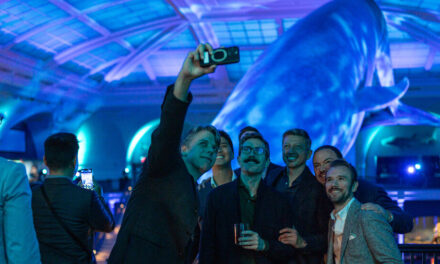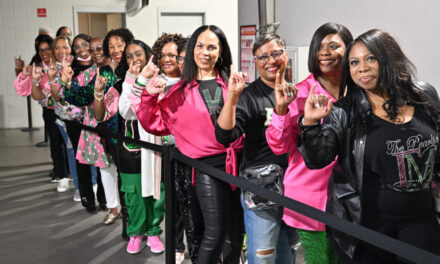Outside of Barbieland, much of our collective panic about dwindling youth and beauty stems from a culture that glorifies being young, while rendering older women invisible.
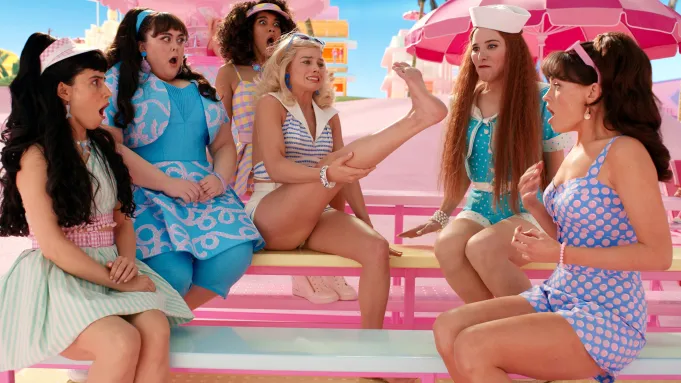
When I was born, my grandmother Frances didn’t want to be called grandma. It sounded too “old.” So, we called her Ma. Very few people knew Ma’s actual age. When asked, she would answer coyly, “21 plus.” At her 76th birthday party, she got cards that said Happy 70th and Happy 65th. It wasn’t until she was well into her 80s that she started confidently sharing her age—and that was only to brag to doctors and nurses who routinely marveled how “young she looked.”
Not surprisingly, I inherited a bit of alarm about aging. This year, I had a milestone birthday. (All you need to know is that I’m 21 plus. I know, I’m working on it.) Sure, age is just a number, but some numbers are more significant than others. And some numbers feel big enough to mark territory—not of who you can become, but of who you can no longer be.
This year has found me clinging to youth with more gusto than ever. I go dancing, braid my hair, wear bikinis and sing karaoke as loudly and as badly as any twenty-something. One time when I was all glittered up to go dancing on a weekday wearing a see-through top, dangling earrings, black cowboy boots and tight jeans, one of my kids mused, “Why can’t you be like other middle-aged people?” I shrugged, but I guess it’s because I think you’re either young or old. And I know which one I’d choose.
Then I saw Barbie.
Greta Gerwig’s film has been labeled a feminist triumph (or failure) and a manifesto against (or tool of) corporate capitalism—but for me, it’s all about my midlife crisis (or “transition,” to be kind).
Ma never eagerly embraced getting old. It just happened. I mean, what’s the other option?
In the film, Barbie finds herself having “irrepressible thoughts of death”—and before she knows it, her perfect body and dream world start showing signs of Real World flaws. She wakes up sluggish with bad breath, gets the shock of a cold shower, burns her waffle, swigs expired milk, and falls to the ground instead of floating out into her world as before. Then, her feet fall flat, and she develops cellulite.
Seeking a remedy, Barbie visits Weird Barbie. Weird Barbie gives Barbie a choice—pick the high heel shoe and forget this ever happened, or pick the Birkenstock and take a journey into the Real World to face the problem. Barbie unhesitatingly picks the high heel. Weird Barbie insists, “You have to want to know,” to which Barbie assures her she does not. It turns out the choice was a lie, and Weird Barbie admits, “There is no option one,” Barbie responds, “That’s a bummer.”
Ma had a ready quip whenever someone would complain about the ravages of aging. “What’s the other option?” she’d ask rhetorically. Indeed, in the Real World, there is no going back. You’re either getting older, or you’re dead.

When Barbie arrives in the Real World—she discovers Gloria, a Mattel employee and mother on the cusp of middle age, who has taken to playing with Barbie. Although she is married with a tween daughter Sasha, Gloria feels “lonely,” “sad and weird.” And it’s her “messy and complicated thoughts” about death and bodily shame that have caused Barbie’s woes.
In the film, feeling and looking “weird” is a recurring theme. Barbie’s journey is a quest to avoid becoming “weird.” Midge, the pregnant Barbie, is discontinued because she’s “too weird.” Gloria’s drawings of Barbie are “weird, dark and crazy”—everything her daughter Sasha says Gloria pretends not to be. And when Barbie returns to Barbieland with Gloria and Sasha only to discover Ken has installed patriarchy, Barbie reaches her “lowest” point “emotionally” and “physically” as she exclaims, “Either you’re brainwashed or you’re weird and ugly.” Weird Barbie sees Barbie’s face planted on the ground and says, “She’s not dead. She’s just having an existential crisis.”
Barbie’s crisis stems from no longer being “perfect” and instead feeling “not pretty anymore” and “not good at anything”—in short, “weird.” Barbie despairs, “I never wanted everything to change,” to which Gloria responds, “Honey, that’s life. It’s all change.”
Gloria, too, is having a life crisis. She calls herself “a boring mom with a boring job and a daughter who hates me.” The two women’s journeys mirror each other, as Barbie declares to Gloria, “I’m like you now—ugly and unwanted.” But they’re not the only ones. At one point, when Barbie complains aloud about “fear with no specific object,” a mom passing by tells her, “It’s anxiety,” which is awful “at this age.”
Midlife has often been deemed the unhappiest time in a person’s life. According to one study, women in the U.S. reach their low point at 40 years old and men at 50. Surprisingly, older people are often the happiest—much like Weird Barbie seems to accept her plight or the old woman that Barbie stumbles upon at a bus stop answers assuredly, “I know it” when Barbie marvels, “You’re so beautiful.”
But I still need to figure out how one crosses safely past the despair of midlife.
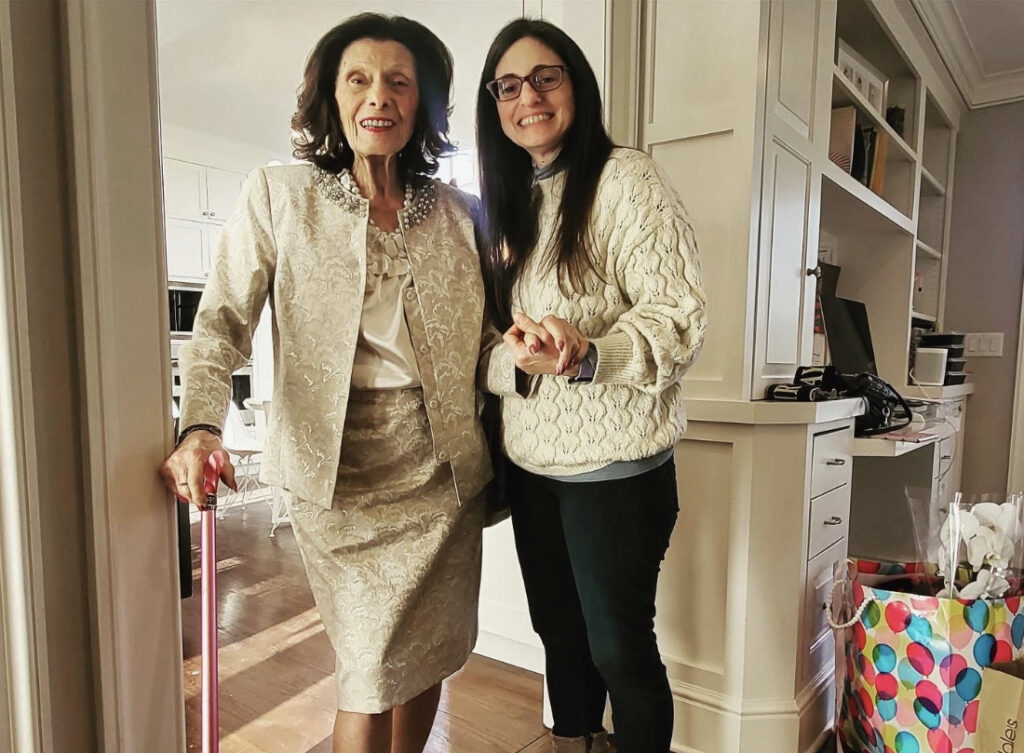
I do not doubt that much of my panic about dwindling youth stems from a culture that glorifies being young while rendering older people—particularly women—invisible. It’s not fair that we live in a culture where women can feel their superpower is their sexual and physical appeal. But that is life in our Real World. Whole industries exist for women to stave off or ameliorate the effects of aging—lotions, makeup, hair dye, Botox and plastic surgery.
And although such interventions are not exclusively for women, they are predominantly so: Over 90 percent of people who get cosmetic procedures are women.
Surprisingly, older people are often the happiest. But I still need to figure out how one crosses safely past the despair of midlife.
Mostly Barbie elides the grim details of aging—focusing on the vague fact that being human is “uncomfortable” and “then you die.” But perhaps the answer is that there is no answer, as summed up by the Indigo Girls’ song that refrains through the film, “And the less I seek my source for some definitive… closer I am to fine” or Barbie’s advice to Ken (who has his own existential crisis), “Maybe all the things that made you you aren’t really you.” Or maybe it’s as pragmatic as Gloria’s suggestion for an Ordinary Barbie: “She just has a flattering top and wants to get through the day feeling kind of good about herself.”
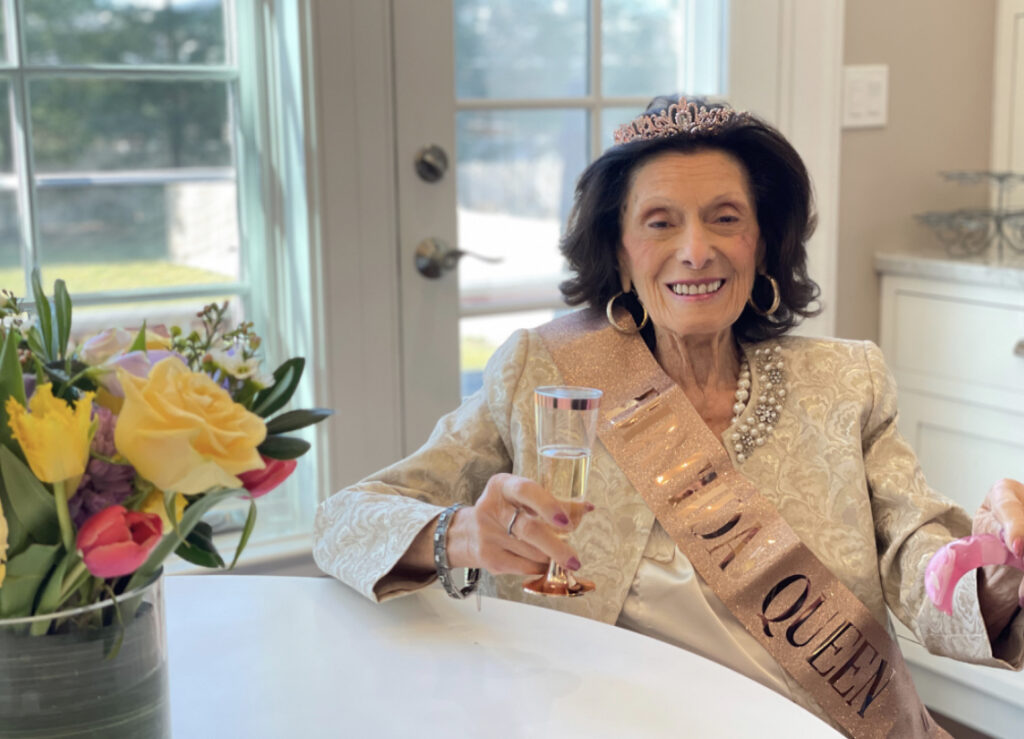
People often said Ma was beautiful enough to be a movie star. She wore high heels her entire life, and when she fell and broke her pelvis in her 70s, we tried to convert her to sneakers, but it was too late—by that point, her feet required the slope of a heel, much like a Barbie.
This year, she turned 97 and again landed in rehab after breaking five ribs. Visiting her there recently, I see occasional glimmers of the fire that so defined her. But much is lost too. She often can’t remember names, or what happened 10 minutes ago, and needs a walker to get around. She is still herself. But she’s also not. She is frail. She is confused. She is old.
I can no longer ask her for the answers—she no longer has them. But I do. They are just too simple to be believed. She never eagerly embraced getting old. It just happened. I mean, what’s the other option?
Up next:
U.S. democracy is at a dangerous inflection point—from the demise of abortion rights, to a lack of pay equity and parental leave, to skyrocketing maternal mortality, and attacks on trans health. Left unchecked, these crises will lead to wider gaps in political participation and representation. For 50 years, Ms. has been forging feminist journalism—reporting, rebelling and truth-telling from the front-lines, championing the Equal Rights Amendment, and centering the stories of those most impacted. With all that’s at stake for equality, we are redoubling our commitment for the next 50 years. In turn, we need your help, Support Ms. today with a donation—any amount that is meaningful to you. For as little as $5 each month, you’ll receive the print magazine along with our e-newsletters, action alerts, and invitations to Ms. Studios events and podcasts. We are grateful for your loyalty and ferocity.

